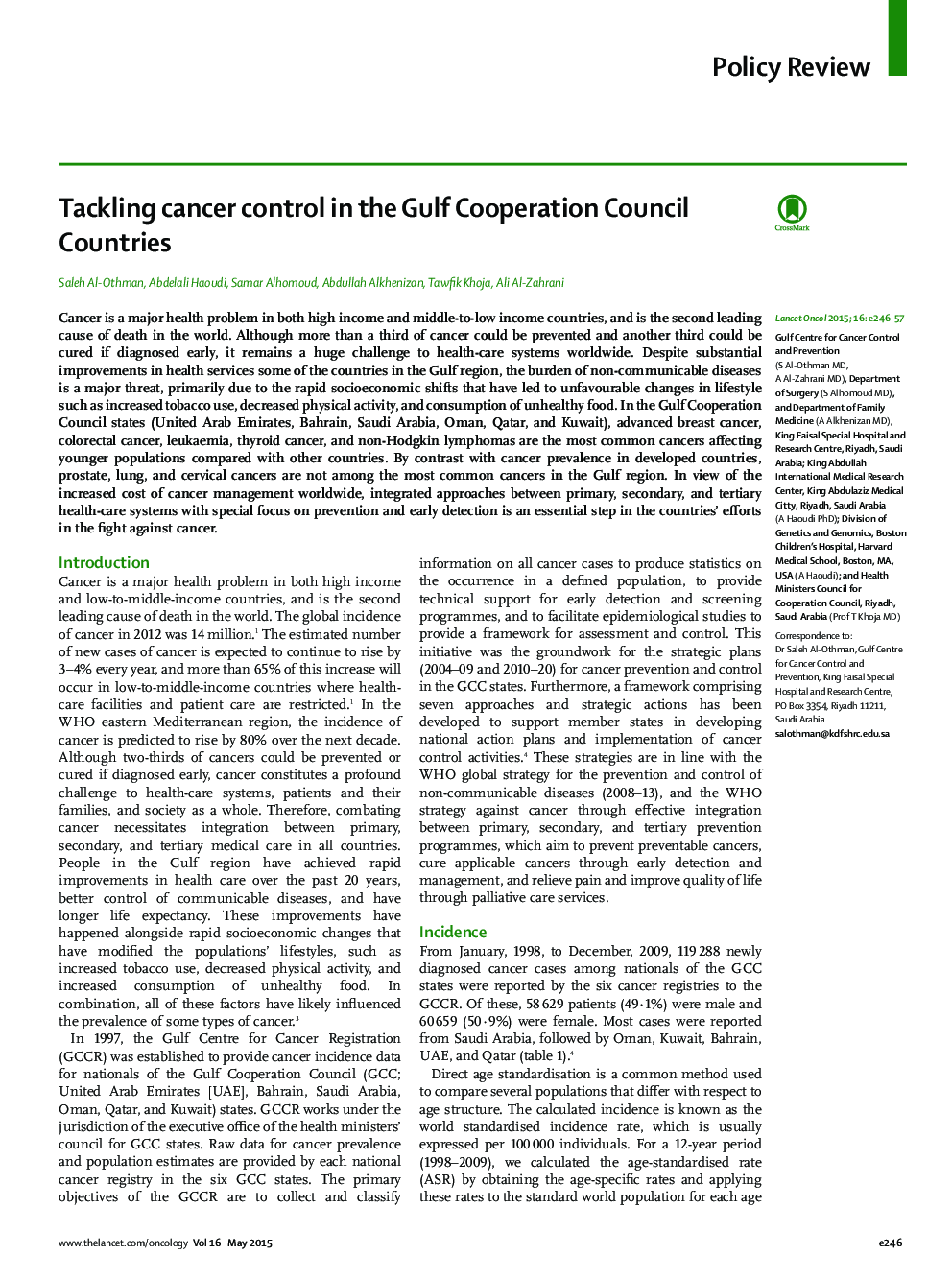| Article ID | Journal | Published Year | Pages | File Type |
|---|---|---|---|---|
| 3994010 | The Lancet Oncology | 2015 | 12 Pages |
SummaryCancer is a major health problem in both high income and middle-to-low income countries, and is the second leading cause of death in the world. Although more than a third of cancer could be prevented and another third could be cured if diagnosed early, it remains a huge challenge to health-care systems worldwide. Despite substantial improvements in health services some of the countries in the Gulf region, the burden of non-communicable diseases is a major threat, primarily due to the rapid socioeconomic shifts that have led to unfavourable changes in lifestyle such as increased tobacco use, decreased physical activity, and consumption of unhealthy food. In the Gulf Cooperation Council states (United Arab Emirates, Bahrain, Saudi Arabia, Oman, Qatar, and Kuwait), advanced breast cancer, colorectal cancer, leukaemia, thyroid cancer, and non-Hodgkin lymphomas are the most common cancers affecting younger populations compared with other countries. By contrast with cancer prevalence in developed countries, prostate, lung, and cervical cancers are not among the most common cancers in the Gulf region. In view of the increased cost of cancer management worldwide, integrated approaches between primary, secondary, and tertiary health-care systems with special focus on prevention and early detection is an essential step in the countries' efforts in the fight against cancer.
